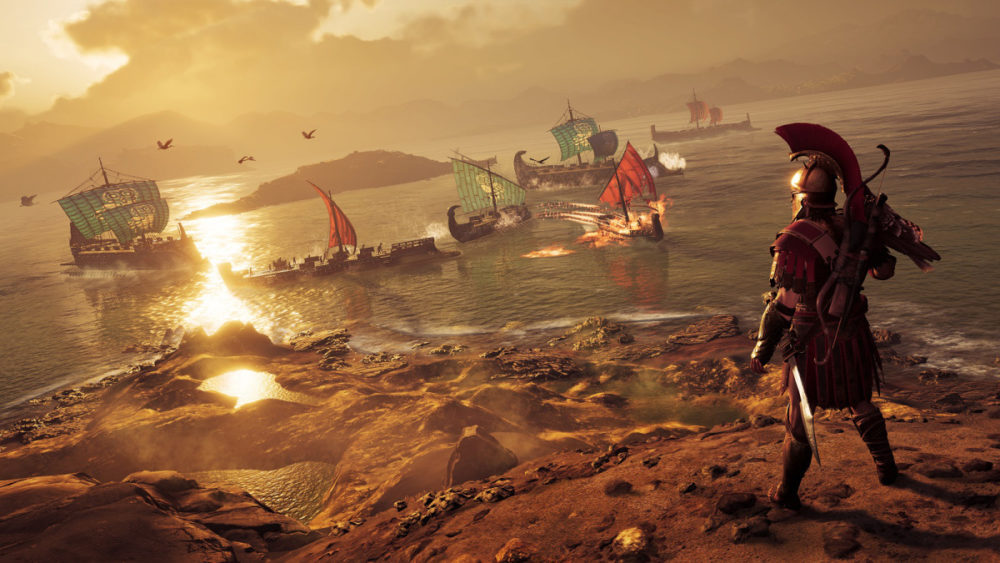Here are the best Assassin’s Creed games. Assassin’s Creed is a widely popular series, and with good reason. Everyone loves jumping into history and feeling like a complete badass. Which one reigns supreme, though? Here are the best Assassin’s Creed games, all of them ranked from worst to best.
Looking for a ranking of the best Assassins? How about the best Assassin’s Creed stories?
Best Assassin’s Creed Games
1. Unity
The one of two most recent installments of the Assassin’s Creed franchise was built exclusively for the next generation of consoles. It sounded like an easy sell — set in the French Revolution, playing as Arno Dorian, a Templar-raised Assassin, sounded pretty sweet.
The French Revolution is set in a time where everyone was an asshole in desperate need of a stabbing. Improvements to the parkour system, being able to climb inside of buildings, and the much touted four player co-op had fans excited. How could you go wrong with a setup like that?
As it turns out, a lot. Bugs out the ass, glitches, and micro-payments were just the first wave of issues surrounding Assassin’s Creed Unity. A bland protagonist with a generic story when compared to the swashbuckling adventure of Edward Kenway and the Count of Monte Cristo revenge story of Ezio. Controls somehow managed to get worse when transferring generations, the co-op mission design was pretty crap. Here’s hoping that Syndicate learns from its mistakes to create a truly next-gen Assassin’s Creed.
2. Bloodlines
The first (and only) game in the series to hit the PSP, Bloodlines was a bridge between the original Assassin’s Creed and AC 2. Once again, we return to the boots of our good friend Altair after the events of the first game. Nothing’s ever easy for him, and he’s caught up in freeing Cyprus from Templar Master Armand Bouchart.
But the whole Templar business more or less takes a back seat to establishing the relationship between Altair and Maria Thorpe, the woman who would later become his wife.
On a technical level, Assassin’s Creed Bloodlines captures the spirit of the series perfectly on the PSP.
The whole interesting part about being an assassinated isn’t represented all that well in Bloodlines, and the weak combat suffers from this more than most. The lack of a second analog stick doesn’t help the free running, so even that isn’t fun. If you still own a PSP and want an Assassin’s Creed fix, this game ain’t it.
3. Altair’s Chronicles
Ubisoft didn’t do much to promote that it was a thing. Whereas the original game was very much about Desmond and the Animus, Altair’s DS adventure makes no real mention of it and focuses primarily on its titular hero.
While it’s a standalone experience, Altair lacks the character development of the console game, and the greater emphasis is on gameplay instead of our hero’s quest to find a Chalice before the Templars. While the traversal works pretty solid, the lack of an open world makes the experience feel not as true to the series as it could’ve been. That said, that it’s able to pull all of this off on the DS is impressive, and it’s the only thing the game really gets across well from the console version.
The combat feels even weaker, and the upgrade system is abysmal. Combined with the short length, Altair’s Chronicles is a good game for portable players, but not something that demands your time if you’re a longtime fan.
4. Russia
The third and final chapter in Assassin’s Creed’s Chronicles sub-series was released recently with little fanfare, and it’s sort of easy to see why. As Nikolai Orelov (who diehard fans may remember as the protagonist of series comics The Fall and The Chain), players are tasked with retrieving Ezio’s box as one final mission before he and his family flee to America.
Unfortunately, he winds up having to protect the young daughter of an assassination target from both Assassins and Templars while also still in possession of the box.
As far as setups go, it’s not bad, the issue lies with the gameplay. It feels like more than the last two games, Nikolai is weak and can’t take much damage. To balance that out, the stealth tools are more varied–you have a grappling hook that can send an electric charge a rifle to pick off enemies from afar–but they don’t feel like they’re perfectly in tune with the game’s pacing and almost seem like they were added in at the last minute.
Combined with some bad chase levels and a depressing art style, this isn’t a good note to end the trilogy on, comrade.
5. ACIII
Assassin’s Creed III had some shoes to fill after the Ezio trilogy capped things off. It was the first game to take players to the United States, set during the American Revolution. With new protagonist Connor Kenway, the bar had been raised for Assassins, and his background as the son of a Mohawk and Templar wanting revenge for his tribe being attacked by Charles Lee made for interesting backdrop.
It also had the task of wrapping up the huge “end of the world” plot that had been hinted at the end of the original Assassin’s Creed, and more importantly, give present-day protagonist Desmond Miles some payoff.
Turns out that Assassin’s Creed III wasn’t entirely ready to fill the shoes of its older siblings. Connor had the potential to be an interesting character if it weren’t for his father Haytham being playable for the first three sequences. Haytham may be a dick, but he ended up being more compelling in the first few hours than Connor did for the rest of the day.
It’s said that the final installment in a trilogy is usually the most disappointing, and in the case of Assassin’s Creed III, that certainly is the case. Still, at least you participate in the Revolutionary War!
6. Liberation
Don’t be surprised if Assassin’s Creed Liberation flew under your radar. This game was massively overshadowed by Assassin’s Creed 3, and even when it migrated from PS Vita to the PS3 and 360, Ubisoft didn’t do much to make people aware of it. Which is a shame, because Aveline’s story from daughter of a French nobleman and a slave to Assassin was pretty well told.
If nothing else, using her story as a way to create a disguise system where she can alternate between looking like a Slave, a Maiden, or an Assassin. It’s a pretty cool way to acknowledge the privilege of her biracial heritage while acknowledging the weird meta of someone looking like an Assassin not drawing much attention in the open world.
Despite its limited scope due to being a Vita game, Assassin’s Creed Liberation does feel like an AC game at its heart. It’s still fun to do all the old stuff we’re used to here, from climbing around to slicing folks throats. The shipping business side task works as well as it needs to, but largely avoids the typical problem of having so much money you don’t know what to do with it. Largely.
Like its protagonist, Liberation’s identity shifting can lead to moments where it isn’t exactly sure what it’s doing. But when it does, it’s fun and in some ways eclipses its console big brother.
7. Revelations
When compared to Brotherhood and II, Assassin’s Creed Revelations didn’t exactly have anything new under its hood. It was basically just minor improvements over the things that were in the previous two installments, like the hook blade that lets you jump one foot higher. What a huge improvement to the parkour. Sure, there was a tower defense minigame, but no one remembers that fondly, if they do at all.
Where Assassin’s Creed Revelations gets things done is in its story, by providing players the chance to get some payoff for both good old Ezio and original Assassin’s Creed protagonist Altair. From II to Revelations,we’ve seen Ezio Auditore da Firenze live his life in full, from the very moment he’s born to the time he finally gives up his life as an Assassin to settle down.
While it does feel like a cash-in of good old Ezio’s likability, the ending to Assassin’s Creed Revelations feels like your own life ending. Altair’s charm here will depend on your fondness for him in the first game, but his ending feels appropriate to the character. The game doesn’t get everything right, but it succeeds in giving players some closure to two of its most important characters.
8. India
After spending some time in China, Chronicles jumps further in time to India in 1841, with new leading man Arbaaz Mir. Don’t be all that concerned with anything else other than his name in terms of the narrative, it’s not the biggest draw. If you’re a lore junkie or heavily into history, it could end up being your jam, but otherwise, it won’t enthrall you.
Just like before, stealth is the name of the game and proves invaluable if you want to get the best score at the end of the mission. While Arbaaz can take roughly the same amount of damage as Shao Jun and Nikolai did, his combat is much better. It flows better, with plenty of counter and heavy attacks, and it’s clear who you’re attacking (an issue the main games have had for a while now).
Sometimes, the controls aren’t as responsive as they should be, either in combat or during parkour. It can suck dying for the third time because the controller didn’t pick up that you were trying to counter or block. Still, that doesn’t take away from the gorgeous fun that India provides you for the price of $10.
9. China
Our first part of the Assassin’s Creed Chronicles trilogy takes us to China as a concubine turned Assassin named Shao Jun, who was trained by Ezio. Her quest to rid China of the Templar cell as it connects with her rising above her inner darkness is compelling, and looks gorgeous, admittedly. But anyone hoping for some moral ambiguity will disappointed, as the villains are all cookie cutter and generically evil.
On the gameplay side, each level follows the same pattern: find the vantage point, deal with the sometimes annoying climbing, sync up, kill the target. It hearkens back to the original game in a sense, but that doesn’t hide how repetitive it can be. There’s a greater and better used emphasis on stealth here, as far as the Chronicles series goes; Shao’s tools of the trade are all well implemented and useful.
The scoring system encourages you whether you’re as quiet as a mouse or slitting throats at every turn you get, and it’s pretty satisfying to see it pop up on the bottom of your screen. When you hit a certain groove, China excels, just don’t be surprised if that groove gets thrown off every now and again.
10. AC Original
Yes, fair props to the original Assassin’s Creed for kicking off the series.
But man, when you go back and play it, the original just doesn’t have the refinement that the sequels did. It can get very repetitive going from your safehouse to the mission zone over and over again.
Combat is a bit obnoxious and very one-button, lacking the “flourish” of the future games. For some, the controls in general can be just not good, and the AI can just be straight up stupid. It’s very much a Ubisoft game — good concept, decent to middling execution.
11. Rogue
When looking back at the issues that Unity had, Rogue ends up being the better game between the two of them. Multiplayer was axed in favor of a single-player only experience. Most importantly, you were finally able to play as a Templar and see just how things were from the other side of the coin.
As it turns out, while playing as a Templar isn’t completely different from being an Assassin, there’s still some things that separate them. Instead of performing assassinations, you now intercept them like you’re the world’s worst wing man. Our new “hero”, Shay Patrick Cormac, may not be the best protagonist of the series, but he was at least more likable than Arno.
Assassin’s Creed Rogue doesn’t entirely get everything right — there were bugs, and some of the mission could feel a bit samey — but returning the series to its single-player roots and showing how the Templars operate does give some new verses to this old creed.
12. Syndicate
After the debacle of Assassin’s Creed Unity last year, Ubisoft needed to show that they still had some amount of control over their series. All that was fine, but the question still remained: could Syndicate be a good game?
The answer to that is a resounding “yes”; if Unity was a stumble, Assassin’s Creed Syndicate is the series on a comeback. Controls work better, the setting of industrial London is a much better environment to get around in thanks to ziplines and trains, and the core of the series feels like it’s back in full force here. It rarely feels like the game is losing direction of its ultimate goal, even as it heaps new stuff onto you.
Special attention has to be paid to its twin protagonists, Jacob and Evie Frye, whose double act banter definitely help make the game as fun as it is. They may have exactly the type of personalities you’d be able to guess just by looking at them–Jacob’s brash and just wants to punch people and start a gang, Evie’s an Assassin history nerd who favors stealth–but their characters are strong when they’re alone or apart. Like the trains Jacob and Evie can hitch a ride on, Assassin’s Creed Syndicate is the series back on the right track.
13. Brotherhood
This would be the start of Assassin’s Creed becoming an annual franchise, and that combined with the addition of multiplayer rubbed fans the wrong way. While yearly franchises are very successful, eventually there’s going to be a moment where they hit a brick wall.
And multiplayer in a game about a lone stealth operative just felt like one of those “wha???” moments. Charging full price for what initially sounded like an expansion pack was another mark against the game, given that this was only a year after Halo 3: ODST came out.
Surprisingly, Brotherhood actually was a significant update to the Assassin’s Creed formula. The Brotherhood mechanic ended up become a legitimate enhancement to the formula. Whether you sent your followers on missions across the globe or just summoned them to deal with people you didn’t like, it went a long way towards making you feel like you were leading a group of assassins.
The multiplayer also ended up being really great, realizing that assassins going up against other assassins is scary when you don’t know which one of the two people standing next to each other is your target or just a random AI character. Brotherhood didn’t just show that the series could handle multiplayer and single player, it showed that maybe the series could handle yearly installments. Well, mostly.
14. Origins
As the series timeline got closer and closer to the present with Syndicate, Ubisoft took a step back with Assassin’s Creed Origins and flung players all the way back to the past. In fact, Origins takes fans the furthest back into the timeline than we’ve ever been before, taking place 1,000 years before the events of even the original game, which explored the Third Crusade in the Holy Land.
Taking place in 49 BCE in ancient Egypt, we got to witness the birth of the Brotherhood and join protagonist Bayek on a quest to avenge his dead son. Origins is quite the departure from what you’d normally expect from your typical Assassin’s Creed game. By adopting more RPG elements, there’s a greater focus on leveling up Bayek and collecting rare and legendary tiers of equipment for him.
That said, the combat still feels clunky and unresponsive at times, though we’re sure that things can only improve from here if Ubisoft stays on this trajectory.
Assassin’s Creed Origins’ ancient Egypt setting is also a wonderful breath of fresh air, a welcome break from the industrial vibes and cities from past entries. Though the RPG elements themselves could use a bit more fine tuning, the gameplay shake-up for Origins made the series feel fresh and exciting again. We just wish the main story was a little more engaging.
15. Black Flag
Who would’ve thought that Assassin’s Creed and pirates would actually turn out to be a pretty damn fun combination? After Assassin’s Creed III didn’t really wow everyone with its trip to America, Black Flag decides that the smartest thing to do was to take the naval missions from III and make them the core focus of the game.
It was refreshing to play as an Assassin who isn’t really an Assassin; Edward just stabs a defector and decides to wear his uniform and lie his way to Havana.
Because of the new emphasis on traveling and exploring the world this time around, Black Flag shines when you’re in the sea, whether it’s just traveling from island to island searching for a target or treasure, or listening to your crew sing a jaunty tune. Ship combat itself is fun and really makes you actually feel like a pirate, from steering your ship and avoiding cannons to swinging over to the enemy vessel and killing the captain to take the wood and add new members to your crew.
Assassin’s Creed Black Flag isn’t without its faults, but when you weigh them against everything it gets right, it’s one hell of a treasure you’ve got. Also, it has one of the best main themes of the series.
16. Odyssey
The latest entry in Ubisoft’s esteemed action-adventure franchise, Assassin’s Creed Odyssey builds upon the groundwork laid by Origins, and makes it even better. The RPG mechanics in Odyssey are a little more lax, and there’s no longer much of a grind when it comes to getting to the appropriate levels for main story quests.
Even more importantly, though, Odyssey also features the best personal story we’ve seen in the series since the original game. Alexios and Kassandra are fantastic, cheeky characters with tons of personality – a fact that’s served by the newly implemented dialogue options, which allow you to shape them however you want.
This is also easily the funniest game in the series, as evidenced by how unabashedly funny some of the quest writing can be. It’s not everyday you get to play an Assassin’s Creed game and hear an NPC shout at you, “You killed my mater and had sex with my pater!” before he runs away screaming.
17. AC II
If the original Assassin’s Creed was a great idea with some decent execution, Assassin’s Creed II is that same great idea with better execution in pretty much every aspect. Instead of heading to your safehouse to learn about your next assassination target and perform recon, you just tail them, pick out the gadget you want to murder them with, and go nuts.
Instead of riding to each new area, there’s now a fast travel system to cut back on commute time. Swordfighting now allows for counterattacks and disarming bad guys before using their weapon against them. A simple story of revenge quickly expands into a complete reworking of everything we thought we knew about the universe, partly in thanks to a fun investigation minigame that’s sadly been missing the past few installments. Even better and more importantly, you can now swim and use use your eagle vision in third-person mode.
The narrative provided a much more interesting and compelling character in the form of Ezio Auditore da Firenze. Starting the game literally with him being born helps you form an attachment to the character instantly. His transition from suave and womanizing noble to badass killing machine (with the help of good ol’ Leo Da Vinci!) is fun and interesting in and of itself.
The sequel doesn’t just have a fun action stealth game on its disc, it’s also got an amazing character.
Like our list of the best Assassin’s Creed games? Disagree? Let us know how you rank Assassin’s Creed games in the comments below.

Assassin's Creed Unity
The French Revolution is set in a time where everyone was an asshole in desperate need of a stabbing. Improvements to the parkour system, being able to climb inside of buildings, and the much touted four player co-op had fans excited. How could you go wrong with a setup like that?
As it turns out, a lot. Bugs out the ass, glitches, and micropayments were just the first wave of issues surrounding Assassin's Creed Unity. A bland protagonist with a generic story when compared to the swashbuckling adventure of Edward Kenway and the Count of Monte Cristo revenge story of Ezio. Controls somehow managed to get worse when transferring generations, the co-op mission design was pretty crap. Here’s hoping that Syndicate learns from its mistakes to create a truly next-gen Assassin’s Creed. There was no other choice; we had to place it here among our best Assassin's Creed games.
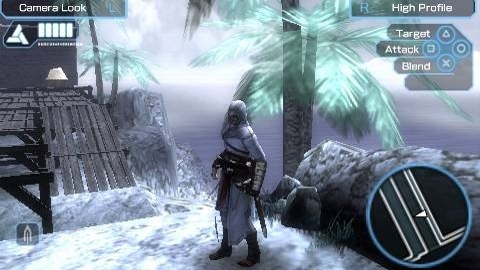
Assassin's Creed: Bloodlines
But the whole Templar business more or less takes a back seat to establishing the relationship between Altair and Maria Thorpe, the woman who would later become his wife. While the development of their relationship is interesting, fans hoping for a compelling adventure of the Assassin-Templar War will be disappointed.
On a technical level, Assassin's Creed Bloodlines captures the spirit of the series perfectly on the PSP. Everything, from the environment to the interface, is faithful to the game that's started it all. But what sadly got lost in translation was the mission structure and combat.
The whole interesting part about being an assassinated isn't represented all that well in Bloodlines, and the weak combat suffers from this more than most. The lack of a second analog stick doesn't help the free running, so even that isn't fun. If you still own a PSP and want an Assassin's Creed fix, this game ain't it. There was no other way around it; we needed to place it here among our best Assassin's Creed games.
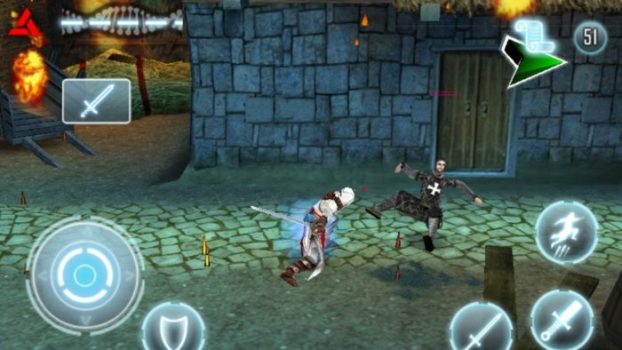
Assassin's Creed: Altair's Chronicles
While it's a standalone experience, Altair lacks the character development of the console game, and the greater emphasis is on gameplay instead of our hero's quest to find a Chalice before the Templars. While the traversal works pretty solid, the lack of an open world makes the experience feel not as true to the series as it could've been. That said, that it's able to pull all of this off on the DS is impressive, and it's the only thing the game really gets across well from the console version.
The combat feels even weaker, and the upgrade system is abysmal. Combined with the short length, Altair's Chronicles is a good game for portable players, but not something that demands your time if you're a longtime fan. We simply had to place it here among our best Assassin's Creed games.
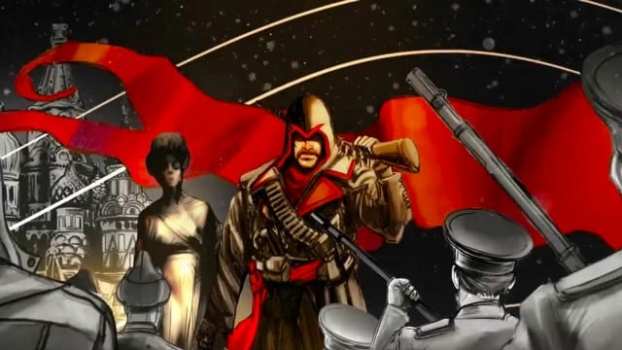
Assassin's Creed Chronicles: Russia
Unfortunately, he winds up having to protect the young daughter of an assassination target from both Assassins and Templars while also still in possession of the box.
As far as setups go, it's not bad, the issue lies with the gameplay. It feels like more than the last two games, Nikolai is weak and can't take much damage. To balance that out, the stealth tools are more varied--you have a grappling hook that can send an electric charge a rifle to pick off enemies from afar--but they don't feel like they're perfectly in tune with the game's pacing and almost seem like they were added in at the last minute.
Combined with some bad chase levels and a depressing art style, this isn't a good note to end the trilogy on, comrade. We simply had to place it here among our best Assassin's Creed games.
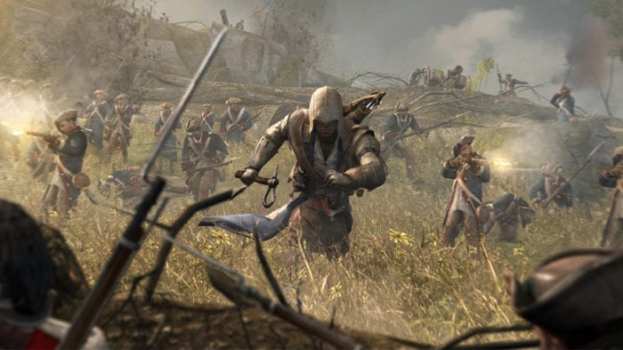
Assassin's Creed III
It also had the task of wrapping up the huge “end of the world” plot that had been hinted at the end of the original Assassin’s Creed, and more importantly, give present-day protagonist Desmond Miles some payoff.
Turns out that Assassin’s Creed III wasn’t entirely ready to fill the shoes of its older siblings. Connor had the potential to be an interesting character if it weren’t for his father Haytham being playable for the first three sequences. Haytham may be a dick, but he ended up being more compelling in the first few hours than Connor did for the rest of the day.
It’s said that the final installment in a trilogy is usually the most disappointing, and in the case of Assassin’s Creed III, that certainly is the case. Still, at least you participate in the Revolutionary War! We simply had to place it here among our best Assassin's Creed games.
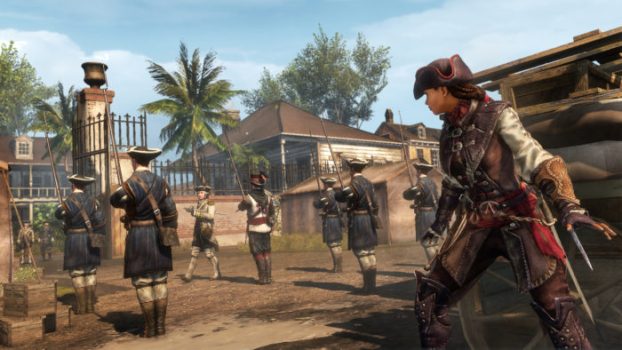
Assassin's Creed Liberation
If nothing else, using her story as a way to create a disguise system where she can alternate between looking like a Slave, a Maiden, or an Assassin. It's a pretty cool way to acknowledge the privilege of her biracial heritage while acknowledging the weird meta of someone looking like an Assassin not drawing much attention in the open world.
Despite its limited scope due to being a Vita game, Assassin's Creed Liberation does feel like an AC game at its heart. It's still fun to do all the old stuff we're used to here, from climbing around to slicing folks throats. The shipping business side task works as well as it needs to, but largely avoids the typical problem of having so much money you don't know what to do with it. Largely.
Like its protagonist, Liberation's identity shifting can lead to moments where it isn't exactly sure what it's doing. But when it does, it's fun and in some ways eclipses its console big brother. We simply had to place it here among our best Assassin's Creed games.
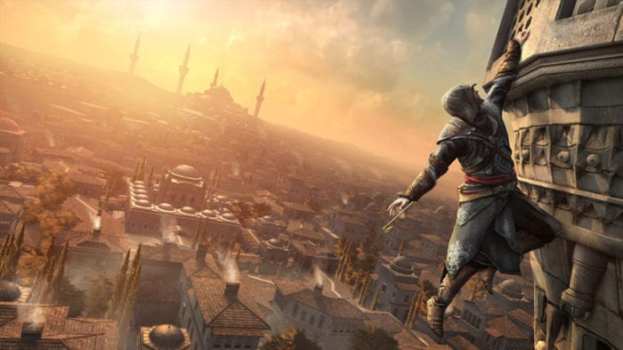
Assassin's Creed Revelations
Where Assassin's Creed Revelations gets things done is in its story, by providing players the chance to get some payoff for both good old Ezio and original Assassin’s Creed protagonist Altair. From II to Revelations,we’ve seen Ezio Auditore da Firenze live his life in full, from the very moment he’s born to the time he finally gives up his life as an Assassin to settle down.
While it does feel like a cash-in of good old Ezio’s likability, the ending to Assassin's Creed Revelations feels like your own life ending. Altair’s charm here will depend on your fondness for him in the first game, but his ending feels appropriate to the character. The game doesn’t get everything right, but it succeeds in giving players some closure to two of its most important characters. We simply had to place it here among our best Assassin's Creed games.
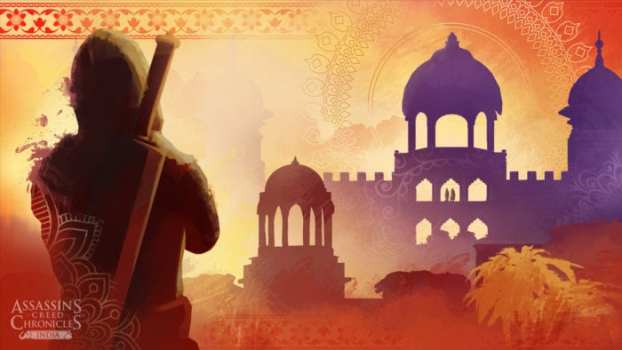
Assassin's Creed Chronicles: India
Just like before, stealth is the name of the game and proves invaluable if you want to get the best score at the end of the mission. While Arbaaz can take roughly the same amount of damage as Shao Jun and Nikolai did, his combat is much better. It flows better, with plenty of counter and heavy attacks, and it's clear who you're attacking (an issue the main games have had for a while now).
Sometimes, the controls aren't as responsive as they should be, either in combat or during parkour. It can suck dying for the third time because the controller didn't pick up that you were trying to counter or block. Still, that doesn't take away from the gorgeous fun that India provides you for the price of $10. We simply had to place it here among our best Assassin's Creed games.
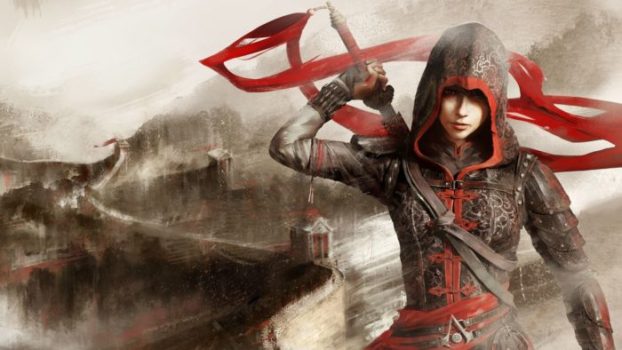
Assassin's Creed Chronicles: China
On the gameplay side, each level follows the same pattern: find the vantage point, deal with the sometimes annoying climbing, sync up, kill the target. It hearkens back to the original game in a sense, but that doesn't hide how repetitive it can be. There's a greater and better used emphasis on stealth here, as far as the Chronicles series goes; Shao's tools of the trade are all well implemented and useful.
The scoring system encourages you whether you're as quiet as a mouse or slitting throats at every turn you get, and it's pretty satisfying to see it pop up on the bottom of your screen. When you hit a certain groove, China excels, just don't be surprised if that groove gets thrown off every now and again. We simply had to place it here among our best Assassin's Creed games. We simply had to place it here among our best Assassin's Creed games.
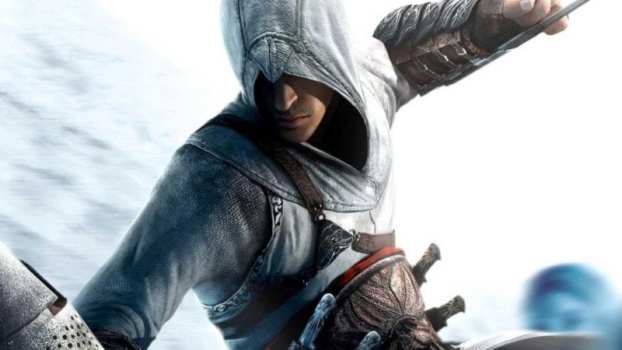
Assassin's Creed Original
But man, when you go back and play it, the original just doesn’t have the refinement that the sequels did. It can get very repetitive going from your safehouse to the mission zone over and over again.
Combat is a bit obnoxious and very one-button, lacking the “flourish” of the future games. For some, the controls in general can be just not good, and the AI can just be straight up stupid. It’s very much a Ubisoft game — good concept, decent to middling execution. We simply had to place it here among our best Assassin's Creed games.
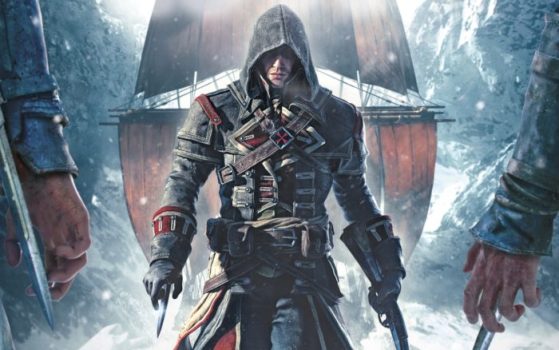
Assassin's Creed Rogue
As it turns out, while playing as a Templar isn’t completely different from being an Assassin, there’s still some things that separate them. Instead of performing assassinations, you now intercept them like you’re the world’s worst wingman. Our new “hero”, Shay Patrick Cormac, may not be the best protagonist of the series, but he was at least more likable than Arno.
New weapons like the air rifle and grenade launcher mix things up in the art of warfare, and damn if there isn’t fun to be had in going up against an Assassin one on one. Assassin's Creed Rogue doesn’t entirely get everything right — there were bugs, and some of the mission could feel a bit samey — but returning the series to its single-player roots and showing how the Templars operate does give some new verses to this old creed. We simply had to place it here among our best Assassin's Creed games.

Assassin's Creed Syndicate
The answer to that is a resounding "yes"; if Unity was a stumble, Assassin's Creed Syndicate is the series on a comeback. Controls work better, the setting of industrial London is a much better environment to get around in thanks to ziplines and trains, and the core of the series feels like it's back in full force here. It rarely feels like the game is losing direction of its ultimate goal, even as it heaps new stuff onto you.
Special attention has to be paid to its twin protagonists, Jacob and Evie Frye, whose double act banter definitely help make the game as fun as it is. They may have exactly the type of personalities you'd be able to guess just by looking at them--Jacob's brash and just wants to punch people and start a gang, Evie's an Assassin history nerd who favors stealth--but their characters are strong when they're alone or apart. Like the trains Jacob and Evie can hitch a ride on, Assassin's Creed Syndicate is the series back on the right track.
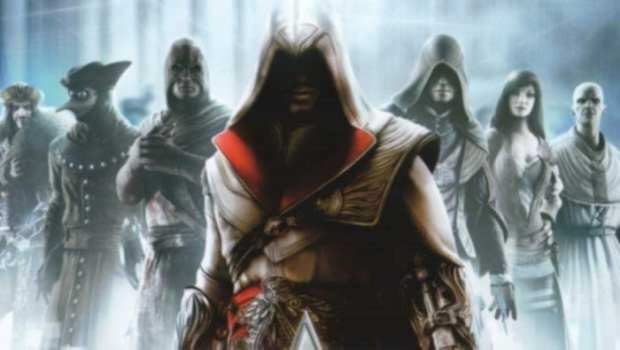
Assassin's Creed Brotherhood
And multiplayer in a game about a lone stealth operative just felt like one of those “wha???” moments. Charging full price for what initially sounded like an expansion pack was another mark against the game, given that this was only a year after Halo 3: ODST came out.
Surprisingly, Brotherhood actually was a significant update to the Assassin’s Creed formula. The Brotherhood mechanic ended up become a legitimate enhancement to the formula. Whether you sent your followers on missions across the globe or just summoned them to deal with people you didn’t like, it went a long way towards making you feel like you were leading a group of assassins.
The multiplayer also ended up being really great, realizing that assassins going up against other assassins is scary when you don’t know which one of the two people standing next to each other is your target or just a random AI character. Brotherhood didn’t just show that the series could handle multiplayer and single player, it showed that maybe the series could handle yearly installments. Well, mostly. We pretty much had to place it here among our best Assassin's Creed games.

Assassin's Creed Origins
Taking place in 49 BCE in ancient Egypt, we got to witness the birth of the Brotherhood and join protagonist Bayek on a quest to avenge his dead son. Origins is quite the departure from what you'd normally expect from your typical Assassin's Creed game. By adopting more RPG elements, there's a greater focus on leveling up Bayek and collecting rare and legendary tiers of equipment for him.
Combat has also been overhauled, and the new hit box system is a huge step up from previous titles. That said, the combat still feels clunky and unresponsive at times, though we're sure that things can only improve from here if Ubisoft stays on this trajectory.
Assassin's Creed Origins' ancient Egypt setting is also a wonderful breath of fresh air, a welcome break from the industrial vibes and cities from past entries. Though the RPG elements themselves could use a bit more fine tuning, the gameplay shake-up for Origins made the series feel fresh and exciting again. We just wish the main story was a little more engaging. We simply had to place it here among our best Assassin's Creed games.
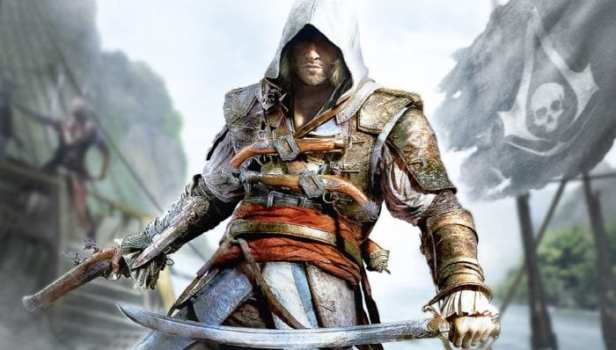
Assassin's Creed Black Flag
It was refreshing to play as an Assassin who isn’t really an Assassin; Edward just stabs a defector and decides to wear his uniform and lie his way to Havana. If you weren’t really sold on the whole Assassin/Templar war going on, you probably found yourself most at home with Edward; while he can perform aerial takedowns, parkour, and slay enemies like the other dudes in white hoods, it all had an undercurrent of “I have no idea who the hell any of these dudes are."
Because of the new emphasis on traveling and exploring the world this time around, Black Flag shines when you’re in the sea, whether it’s just traveling from island to island searching for a target or treasure, or listening to your crew sing a jaunty tune. Ship combat itself is fun and really makes you actually feel like a pirate, from steering your ship and avoiding cannons to swinging over to the enemy vessel and killing the captain to take the wood and add new members to your crew.
Assassin's Creed Black Flag isn’t without its faults, but when you weigh them against everything it gets right, it’s one hell of a treasure you’ve got. Also, it has one of the best main themes of the series. Obviously we had to place it here among our best Assassin's Creed games.
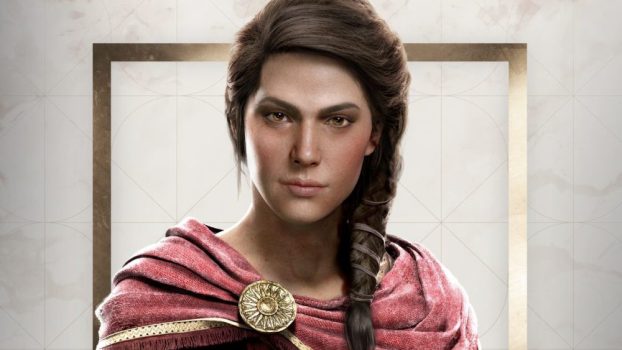
Assassin's Creed Odyssey
Even more importantly, though, Odyssey also features the best personal story we've seen in the series since the original game. Alexios and Kassandra are fantastic, cheeky characters with tons of personality - a fact that's served by the newly implemented dialogue options, which allow you to shape them however you want.
This is also easily the funniest game in the series, as evidenced by how unabashedly funny some of the quest writing can be. It's not everyday you get to play an Assassin's Creed game and hear an NPC shout at you, "You killed my mater and had sex with my pater!" before he runs away screaming.
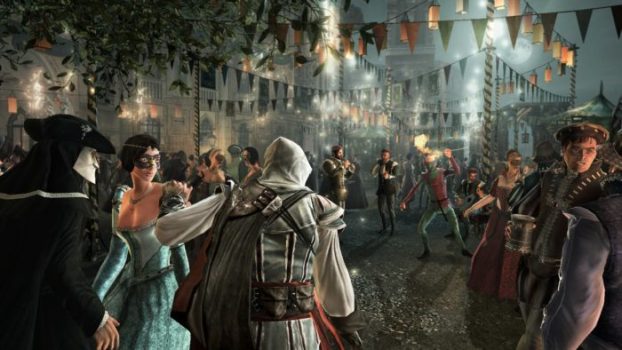
Assassin's Creed II
Instead of riding to each new area, there’s now a fast travel system to cut back on commute time. Swordfighting now allows for counterattacks and disarming bad guys before using their weapon against them. A simple story of revenge quickly expands into a complete reworking of everything we thought we knew about the universe, partly in thanks to a fun investigation minigame that’s sadly been missing the past few installments. Even better and more importantly, you can now swim and use use your eagle vision in third-person mode.
Improvements weren’t just made on the gameplay front. The narrative provided a much more interesting and compelling character in the form of Ezio Auditore da Firenze. Starting the game literally with him being born helps you form an attachment to the character instantly. His transition from suave and womanizing noble to badass killing machine (with the help of good ol’ Leo Da Vinci!) is fun and interesting in and of itself.
There’s a reason why Ezio is considered one of the best characters in gaming, and Assassin’s Creed II is where it starts. The sequel doesn’t just have a fun action stealth game on its disc, it’s also got an amazing character. It was a given as one of the best Assassin's Creed games and the tip top.
Like our list of the best Assassin's Creed games? Disagree? Let us know how you rank Assassin's Creed games in the comments below.
About the author
Twinfinite Staff
Several of Twinfinite's staff likely contributed heavily to this article, so that's why this byline is set. You can find out more about our colorful cast of personnel over in the The Team page on the site.
